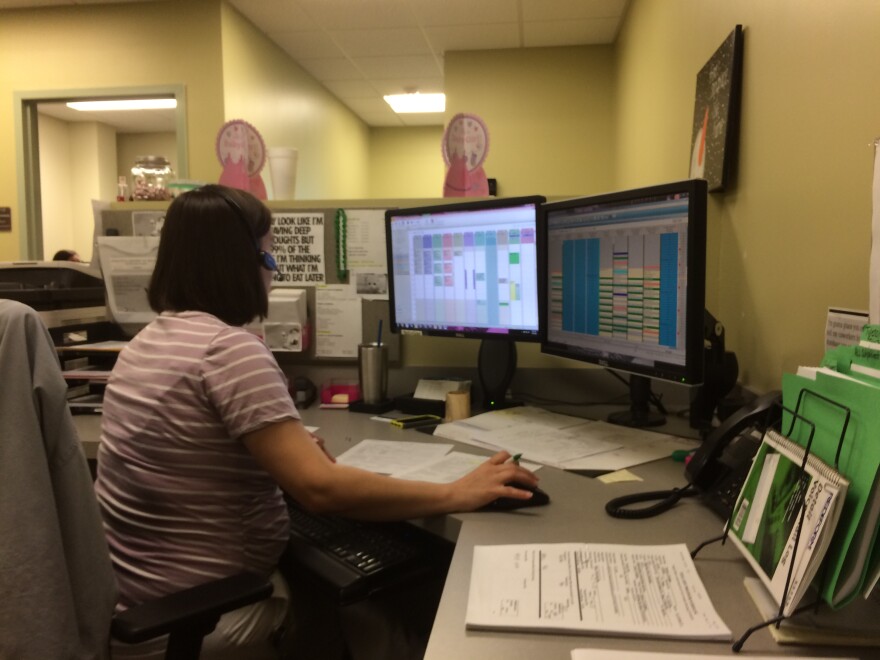It’s been almost two years since the uproar over extreme waits at the VA led the head of that department to resign. Congress responded to the scandal by passing the Veterans Choice program. It allows veterans to go to private doctors on the VA’s tab if the VA keeps them waiting more than a month.
In North Carolina and nationwide, that solution is not working.
The Salisbury VA kept Army veteran Archie Barrow waiting two months for shoulder surgery. So, the Department of Veterans Affairs authorized Barrow for the Choice program.
But when he took the next step, trying to schedule care:
“The first couple phone calls, they said I wasn’t authorized,” Barrow says. “I said, well how am I not authorized? I’ve got two Choice cards here saying I am. And then I finally called back about the third or fourth time and got somebody who was able to help me.”
Those calls went to Health Net, one of two companies managing the Choice program. It took another two months for Health Net, the VA, Barrow and a private doctor to get everything sorted out.
He had surgery a year ago.
“And they still have not paid for it,” he says.
That puts Barrow’s doctor in good company. At least 30 doctor’s offices throughout North Carolina are dealing with Veterans Choice payment problems, some that have lasted more than a year, according to the North Carolina Medical Society.
It’s become a frustration within the VA, too.
“The fact is that people are waiting months and months and it’s like a, we call it the black hole,” Tymalyn James says. She’s a nurse care manager at the VA facility in Wilmington.
She says the Choice program has made the original problem worse.
“As long as the Choice program has gone on, we’ve had progressively longer and longer wait times for Choice to provide the service,” James says. “And we’ve had progressively less and less follow through on the Choice end with what was supposed to be their managing of the steps.“
The frustrations have led to Congressional hearings. In one, Deputy Secretary of Veterans Affairs Sloan Gibson put it this way:
“We know that Choice is not working as well for veterans as it should work,” Gibson said.
Gibson puts part of the blame on the program’s aggressive timeline. Congress gave the VA three months to implement it. VA officials say that scared off many big players in the insurance world, who argued it was really a two-year project.
Ultimately, only two companies sought contracts to manage the program: Health Net and TriWest.
Health Net Vice President Donna Hoffmeier testified at a Congressional hearing this summer.
“The limited implementation period for Choice did not afford VA time to develop necessary policy and process guides,” she said, “nor did it allow us the time to develop operational processes, make needed system changes and to effectively hire and train the staff needed to support a program of this size and complexity.”
Hoffmeier said when timeframes are pushed to unrealistic levels, mistakes happen.
In Gastonia, that leaves Kelly Coward dialing another veteran with bad news.
“Just calling to let you know that I still have not received your authorization for Health Net federal,” she said in a recent call. “As soon as I get it, I will give you a call and let you know that we have it and we can go over some surgery dates.”
Coward works at Carolina Orthopaedic & Sports Medicine. Dealing with Health Net has become a consuming part of her job.
“I have to fax and re-fax and call and re-call, and they tell us that they don't receive the notes,” she says with a big sigh. “That's just every day. And I'm not the only one here that deals with it.”
Carolina Orthopaedic treats about 200 veteran patients. It can take them three to four months just to line up an office visit.
CEO Chad Ghorley is a veteran himself, and he’s frustrated with the long delays his patients face.
“The federal government has put the Band-Aid on it when there's such a public outcry to how the veterans are taking care of, all right?” he says. “Well, they've got the Band-Aid on it to get the national media off their backs. But the wound is still open; the wound is still there. It's just a Band-Aid.”
Congress is now drafting a solution to the original solution.
Republican Senator Richard Burr of North Carolina, Democratic Senator Jon Tester of Montana and others are working on a compromise that could come out this month.

